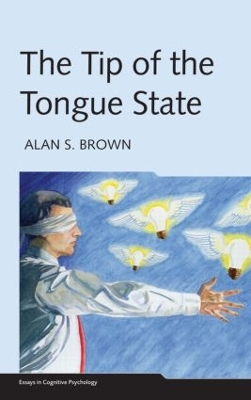Essays in Cognitive Psychology
2 total works
This book brings together the body of empirical findings and theoretical interpretations of the tip of the tongue (TOT) experience – when a well-known or familiar word cannot immediately be recalled. Although research has been published on TOTs for over a century, the experience retains its fascination for both cognitive and linguistic researchers.
After a review of various research procedures used to study TOTs, the book offers a summary of attempts to manipulate this rare cognitive experience through cue and prime procedures. Various aspects of the inaccessible target word are frequently available – such as first letter and syllable number – even in the absence of actual retrieval, and the book explores the implications of these bits of target-word information for mechanisms for word storage and retrieval. It also examines: what characteristics of a word make it potentially more vulnerable to a TOT; why words related to the target word (called "interlopers") often come to mind; the recovery process, when the momentarily-inaccessible word is recovered shortly after the TOT is first experienced; and efforts to evaluate individual differences in the likelihood to experience TOTs.
Most of us have been perplexed by a strange sense of familiarity when doing something for the first time. We feel that we have been here before, or done this before, but know for sure that this is impossible. In fact, according to numerous surveys, about two-thirds of us have experienced déjà vu at least once, and most of us have had multiple experiences.
There are a number of credible scientific interpretations of déjà vu, and this book summarizes the broad range of published work from philosophy, religion, neurology, sociology, memory, perception, psychopathology, and psychopharmacology. This book also includes discussion of cognitive functioning in retrieval and familiarity, neuronal transmission, and double perception during the déjà vu experience.

